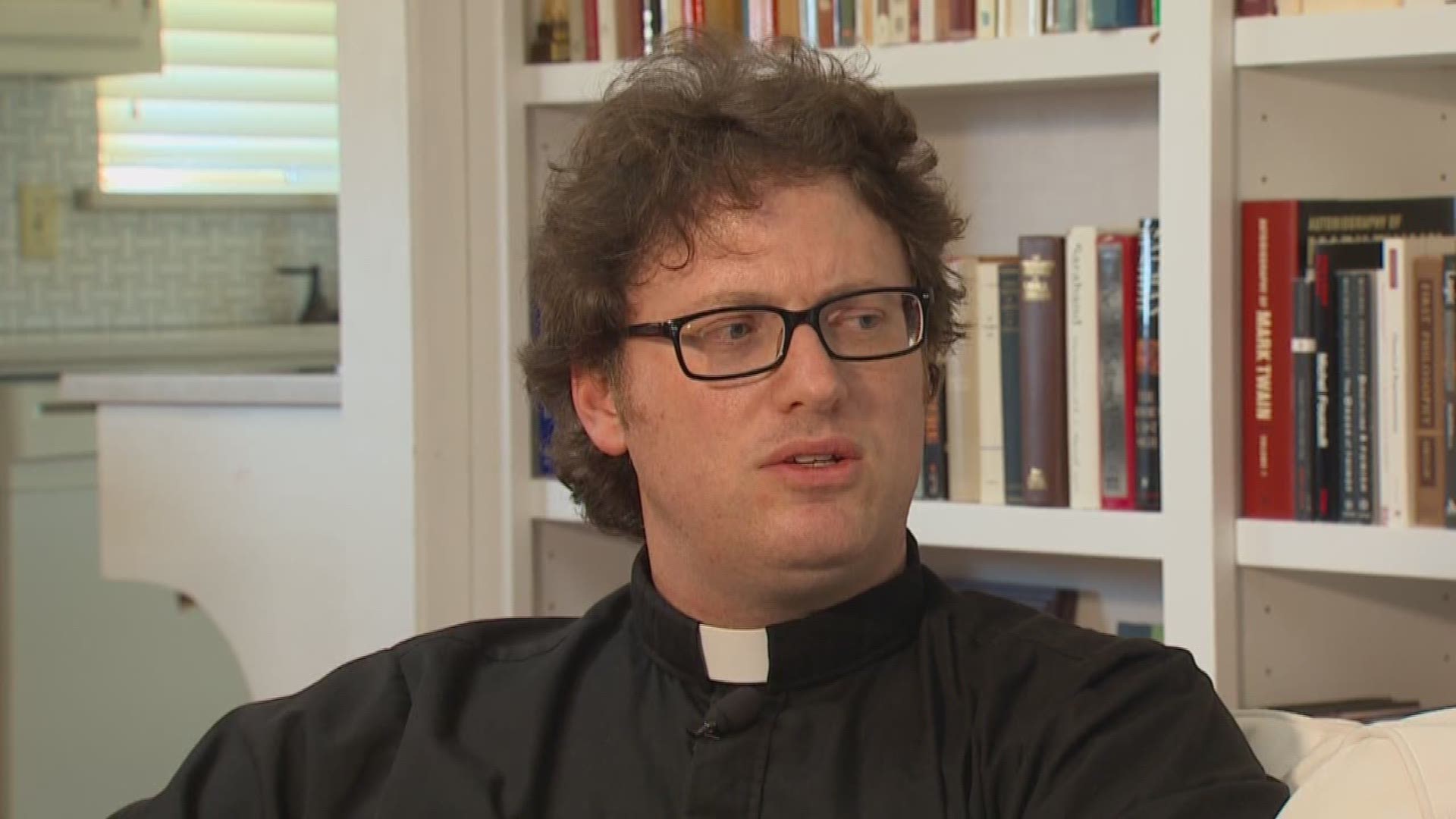DALLAS -- Joshua Whitfield is a husband and father with a clerical collar.
"We live this beautiful, interesting life," he says.
He serves the Catholic faithful at St. Rita’s Parish in Dallas, and his flock at home consists of four children, ranging in ages from six years old to one. Both parts of his life are possible, thanks to his unique path.
"Ever since I was a kid, I thought to myself, 'The Lord wants me to be a priest, right?'" he said.
Raised Episcopalian, Whitfield joined the Anglican priesthood with wife Allison at his side. But they eventually felt a calling to Catholicism. They joined the faith in 2009, and Whitfield was ordained as a priest four years later.
"Our life has kind of built up to this, so it wasn’t like it happened overnight," said Allison Whitfield.
It happened with help from Pope John Paul II’s Pastoral Provision in 1980, which gave former Episcopalian clergy accepted into the Catholic priesthood, an “exception to the rule of celibacy.”
Whitfield is the only active priest married in the Dallas diocese, though three others with his same path have since retired.
It’s given Whitfield a rare perspective when it comes to the idea of allowing married priests, in a faith with a shortage of clergymen. It’s an issue Pope Francis said is worth talking about in an interview earlier this month.
"Yeah... talk about it," said Whitfield. "We’ve talked about it for two millennia!"
It may surprise you that the married priest is against it. He admits his reason why is hard to describe.
"It’s not that they necessarily have more time on their hands, it’s that there’s something spiritually different about a committed celibate," he said. "I know that’s hard to see."
"There are sacrifices he makes by having a family, there’s sacrifices that celibate priests make by not having a family," said Allison. "But there’s good and bad with both."
Whitfield says the majority of married priests agree with him, because while both lives require sacrifice, only one is the church’s long-standing tradition. It remains deeply respected by the men called to serve it.
"We became Catholic because we look at the Catholic church and we believe it and we think it works," said Whitfield. "So we’re not generally keen to change it."

